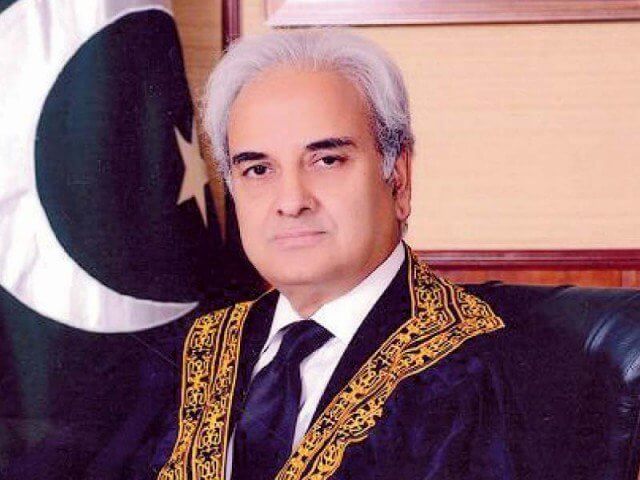Former chief justice Nasirul Mulk today took oath as Pakistan’s seventh caretaker prime minister until general elections on July 25 to oversee the second-ever democratic transition of power in the country ruled by the powerful army for much of its life since it gained independence 70 years ago.
President Mamnoon Hussain administered the oath to 67-year-old Mulk, who was unanimously nominated for the post by both the government and opposition, with former prime minister Shahid Khaqan Abbasi describing the retired judge as a someone whose appointment “no one would object to”, Dawn News reported.
Last week, Leader of the Opposition Khursheed Shah made the announcement at a press conference here which was attended by Prime Minister Shahid Khaqan Abbasi and National Assembly Speaker Ayaz Sadiq.
The present government will complete the tenure on May 31 and the caretaker government will remain in office until a new government is elected.
The caretaker administration will not make any major decisions.
The oath-taking ceremony comes hours after the third National Assembly in a row managed to complete its five-year constitutional term.
However, it is only the second National Assembly under civilian rule which completed its tenure, as the one which came into existence in 2002 continued to function under the former President Pervez Musharraf.
The three National Assemblies have elec ted seven prime ministers over the last 16 years, the report said.
Justice Mulk is one of the seven judges who signed a restraining order on November 3, 2007, when Musharraf imposed emergency and forcibly sent the judges home.
The job of the caretaker prime minister is to keep the country running between the dissolution of parliament and the new government being sworn in.
Mulk was born on August 17, 1950 in Mingora, Swat, in Khyber Pakhtunkhwa province. He worked as lawyer and judge for several years before his appointment as the 22nd Chief Justice of Pakistan in 2014.
In its 70-year-long history, the country experienced its first democratic transition of power in 2013, when Pakistan Peoples Party handed over the power to Pakistan Muslim League-Nawaz (PML-N), which had won the general elections.
As an independent media platform, we do not take advertisements from governments and corporate houses. It is you, our readers, who have supported us on our journey to do honest and unbiased journalism. Please contribute, so that we can continue to do the same in future.

